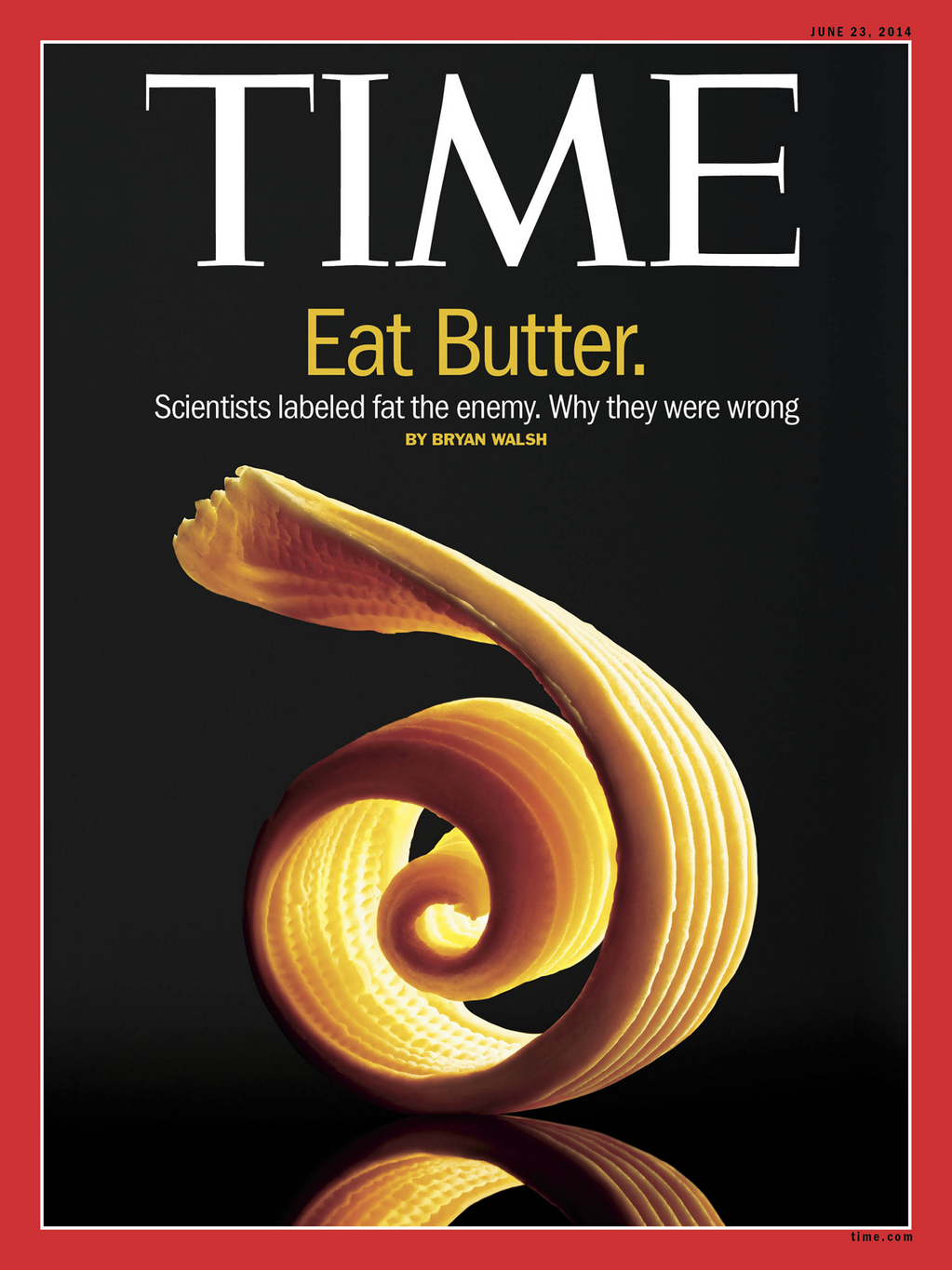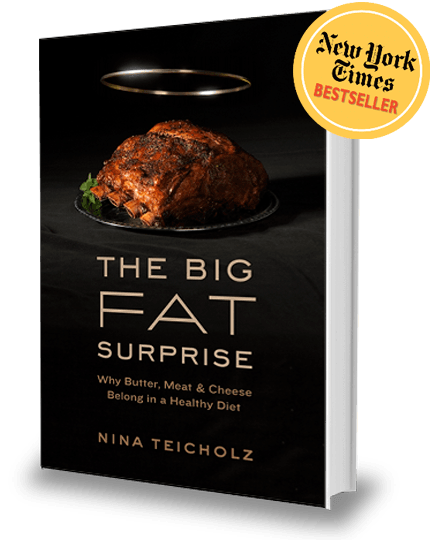What does fat have to do with heart health?
The following articles explore the question of whether there is really reliable scientific evidence that implicates dietary saturated fat as a cause of heart disease:
Gary Taubes penned a convincing indictment of the shabby science behind the AHA's Presidential Advisory, issued in mid-June, 2017. The advisory reiterates the AHA's anti-saturated fat stance, but is very clear about the evidence it used to develop that stance. Said evidence is limited, dated, and unimpressive.
Nina Teicholz's article, "The Questionable Link Between Saturated Fat and Heart Disease" appeared in the WSJ on May 6, 2014. If you read only one piece, this is your article. It is and eye-opener, and deftly hits the highlights of her award winning book, The Big Fat Surprise. Teicholz follows up with this article, "The Last Anti-Fat Crusaders" in the WSJ in October, 2014.
Anahad O'Connor's article, "A Call for a Low-Carb Diet that Embraces Fat" appeared in New York Times Magazine in September, 2014. This article summarizes just one well-controlled NIH funded study that compared a low-carb diet with a low-fat diet.
Brian Walsh's cover article, "Ending the War on Fat" appeared in Time in June, 2014. He begins, "The taste of my childhood was the taste of skim milk. We spread bright yellow margarine on dinner rolls, ate low-fat microwave oatmeal flavored with apples and cinnamon, put nonfat ranch on our salads. We were only doing what we were told."
Gary Taubes' article, "Why the Campaign to Stop America's Obesity Crisis Keeps Failing" in Newsweek in May, 2012.
Gary Taubes led the way with this article, "What if it's all been a big fat lie?" in New York Times Magazine from July, 2002.
The Nutrition Coalition is a non-profit that advocates for science-based dietary guidelines. It maintains a longer list of articles, all reporting on saturated fat and heart disease.
The science is not settled
If you don't mind reading scientific articles, why not go straight to the science?
Just last year, this meta-analysis looked specifically at the question of replacing saturated fat with poly-unsaturated oils. (So, using vegetable oil instead of butter.) The analysis showed no cardiovascular benefits. This result has been found many times in multiple meta-analyses performed over the last decade.
The Nutrition Coalition also maintains a long list of scientific review articles and meta-analyses that look at relationship between dietary saturated fat and heart disease. If you scan through the list, you will see that most reviews show no association, and none show a causal relationship.
Dr. Zoe Harcombe has written her thesis on the lack of an evidence base for low-fat dietary guidelines. This meta-analysis summarizes some of her important work.
In March, 2014, cardiovascular epidemiologist Dr. Rajiv Chowdhury, out of Cambridge University, released a large meta-analysis that reviewed over 80 studies, with more than 500,000 participants, representing decades of research. His conclusion?
“My take on this would be that it’s not saturated fat that we should worry about.”



